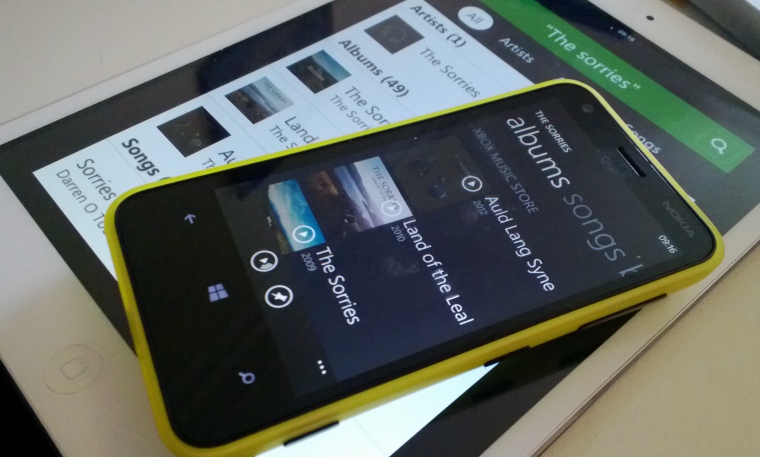Given that, which areas could give Microsoft a solid return with some good marketing and online buzz? Here are five thoughts on areas where the Windows Phone story could be retold to make a difference.
Photography
I still think this is the biggest potential win for Windows Phone. Nokia makes up the lion's share of the Windows Phone devices in consumer's hands, and the Finns still lead the way in camera technology across the portfolio and price points. The photographic benefits are obvious with the Lumia 1020, but the 'quality at cost' that the low-end Lumia 520 and Lumia 521s offer is still the best in the budget market.
Yet the plaudits continue to be driven towards Apple with their sapphire lenses, and Android devices with densely packed multi-megapixel sensors. While those are nice bullet points, it's the final image that counts. More to the point it's having that final image be seen by your friends and on social networks that count.
Yes, Instagram takes care of the immediate need, but photography on Windows Phone could be so much more. What would pay dividends is Microsoft sitting down to work on an incredibly good Flickr client, improve the 500px client, work out where the social networks for serious photography fans are, and make sure that Windows Phone is the number one mobile experience for these networks.
Music
Microsoft actually has a strong base with music on their mobile platform - the Xbox Music catalogue is comparable to Google Play Music and the iTunes Store, and it is now a cross-platform solution with clients for Android, iOS, as well as Windows 8, Xbox 360, and Windows Phone. It still has some rather restrictive DRM issues, and the story of Xbox Music is one that I don't think the public fully appreciate. Most people feel one subscription music service in their life is enough, and if Xbox Music is not considered in the same breath as Pandora or Spotify, then it's game over. Much more promotion is required to rectify that.

Microsoft also need to sort out podcatching on Windows Phone. While the third-party app scene for podcatchers is strong, the built-in option is far from a smooth experience, and it still has far too much of a US focus in terms of available capabilities.
Gaming
If only there was an over-arching gaming brand on Windows Phone that was treated with respect, dignity, and provided regular news updates and game releases... [If only... needs a snappy name starting with a letter like 'X'.... - Ed]
Mapping
Nokia remains a leader in mapping, and the Nokia Maps suite has been the gold standard for the last few years. I don't think it's a surprise that Nokia is retaining the profitable Navigation team while Microsoft buys the Devices and Services team. But it feels that mapping has been pushed to a backwater in terms of promotion and marketing during 2013 and into 2014. Yes the ARG elements always come out for the adverts and trade show demonstrations, but I've rarely used that facility in real-life, relying on the more traditional 2D mapping views.


If you have a story that works (and mapping on Windows Phone does), then you need to keep telling that story or you will lose the perceived lead in the mind of the consumers who aren't yet on your platform. Which in the case of Windows Phone is pretty much 90% of the available market.
Office Work and Business
Seriously, I know everyone in the industry jokes that Microsoft Office is the only thing that sells, but there is a lot of truth in that statement. Windows Phone has been one of the few handsets with a workable 'round trip' solution for editing files and for cloud management of MS Office files. While there have been some areas that have reached other platforms (notably OneNote) Microsoft squandered many opportunities to push Office as the killer app for Windows Phone.
The moment appears to be passing, with Office likely to appear on iOS in the near future. But with the increase in cloud services and Office 365, Windows Phone as a platform to do business on is still an area that can be capitalised on.
Over to you now - which area do you think would provide Microsoft and Windows Phone a strong return for their investment? Let us know in the comments.
